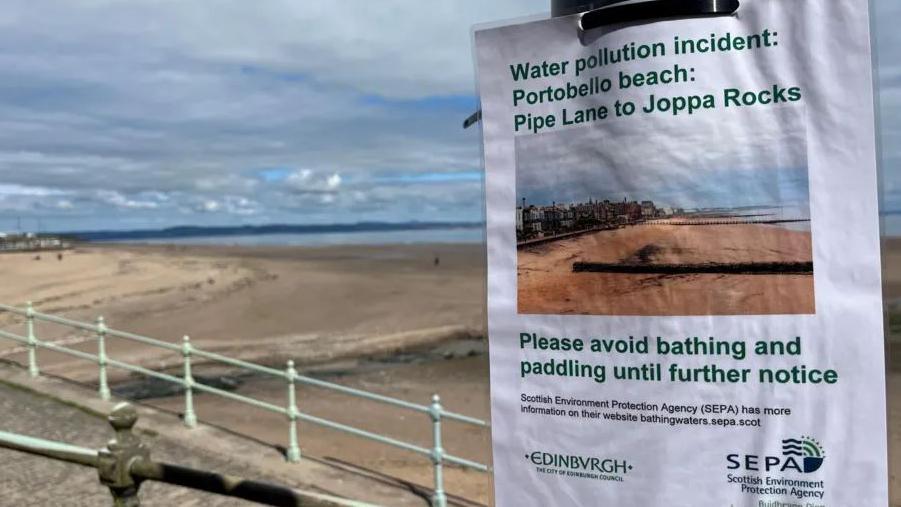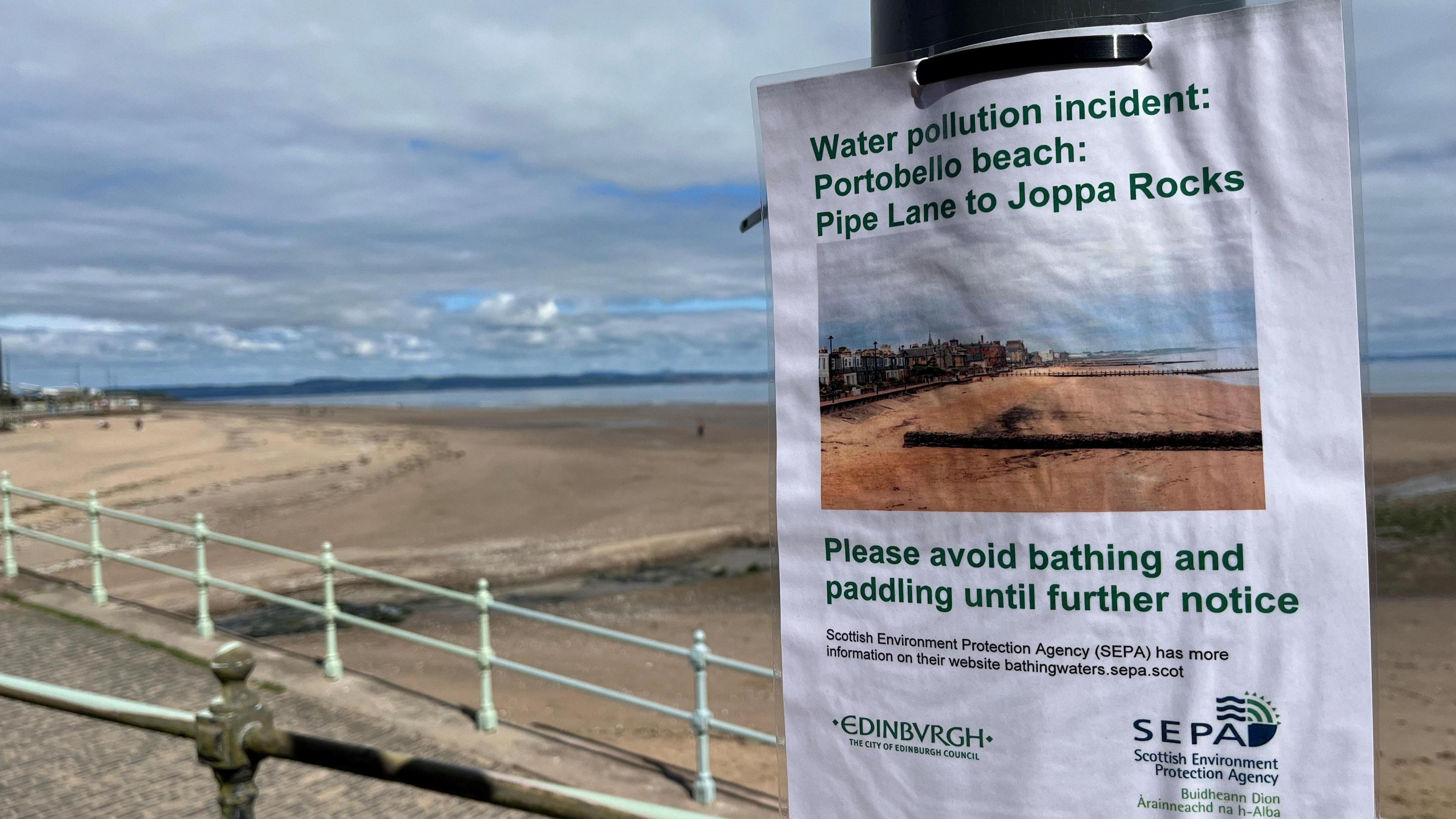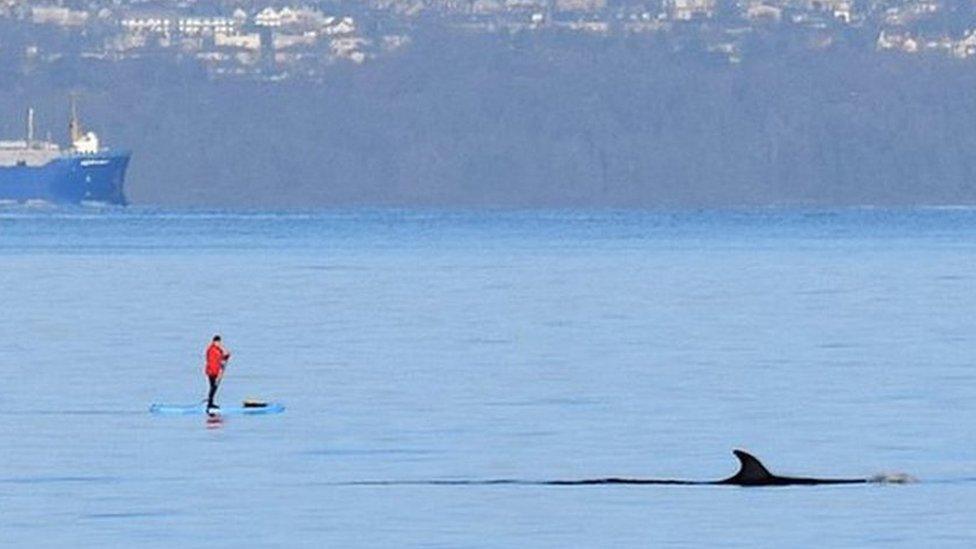Tests show Portobello beach pollution not due to sewage

Sepa issued a notice to avoid swimming on the beach on 10 July
- Published
Sewage did not cause a surge in bacterial pollution which made Portobello beach unsafe for swimmers, according to the Scottish Environmental Protection Agency (Sepa).
The agency issued a warning on 10 July, advising swimmers to avoid bathing at a section of the Edinburgh beach until further notice.
Further sampling on 11 July following the advisory notice showed water quality was "back to normal" according to Sepa, indicating a "short-lived event that had no lasting impact".
The agency said long term sampling of water from the site has shown the main sources of pollution there to be human, dog and gull waste.
Following water quality sampling tests, known as microbial source tracking (MST), the advisory against swimming at the beach was removed on 12 July.
MST uses DNA-based techniques to determine the sources of bacteria in water.
Long-term sampling and MST at Portobello has shown the main sources of pollution at the site to be human, dog, and gull waste.
Vicki White, Sepa senior manager in environmental performance, said beachgoers can help protect water quality by picking up litter to deter gulls feeding and by cleaning up after dogs.
She added: "Microbial source tracking can be very helpful in identifying a source, but in this case our analysis of this one sample has not been able to identify one.
"However, these results, combined with the fact our officers found no issues when we checked Scottish Water assets in the area, do indicate that this was not a sewage-related incident.
"Water sampling will be ongoing throughout the bathing season as part of routine testing, and we will continue to investigate any high bacterial results and take actions to tackle any pollution sources identified."
Sepa conducts weekly tests of water quality at bathing sites, with results , externaland predictions, external available online.
- Published12 July 2024

- Published14 November 2023
